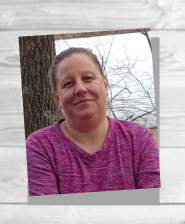How to Homeschool Using Only the Library
April 10, 2019
Volunteer Contributor post by Kimberly Smith
The library is a wonderful resource for any homeschool parent. I use my library for most of my subjects including: reading, science, math, art, music, and history. The resources help to enrich the curriculum that I am already using. However, if you wanted to – you could just use the library for all of your homeschooling. This article will talk about how to homeschool just using the library.
Libraries have changed over the last 15 years. Most libraries have access to many other libraries in the state and this gives you much more to work with. Libraries also have computers for public use. Also, many libraries have a homeschool resource section. You could use the library from pre-school to high school and have an excellent education to prepare your student for the next stage of life.
Using the Library to Homeschool
If you are only using the library for all your homeschooling needs the first thing I would recommend is to get to know your local library and staff very well. The librarians will be able to help meet your needs by pointing you in the right direction and making recommendations. Second, look to see what homeschool resources they might offer. A word of caution, librarians can help but it is not their job to do the research and order things for you. I did have one librarian in the past go above and beyond.
For most subjects like reading, English, art, music, science, and history you need to decide what area or who to study and get the age-appropriate materials. There will be picture books, leveled readers, classics, biographies, textbooks, specialty series, as well as videos to choose from. How you use these will be up to you. And, you can make up your own worksheets, tests, and projects to help your child learn the information.
The beauty of this is that you can choose to study any theme and cover all your subjects and all your students regardless of age can participate. For example, let’s take the Civil War. Vocabulary and spelling lists can be developed. When you pull together a reading list that covers the civil war, your students will cover the areas of history, reading, and writing. Then you can break it down further to look at the art and music that was normal for that time period. For science, you could study the medicine that was used during wartime. By doing this unit study approach your whole family will learn so much and you will have covered most of the requirements needed for homeschool. Doing this type of unit study could take all year or simply one semester. You would decide just how much material you want to cover.
Making it Age-Appropriate
For math, you will need to look for age-appropriate textbooks, workbooks, and computer software. Then you could make your own worksheets and tests or of course find some free worksheets online. There are also lots of free math games that can be played on the computer.
The library has books and computer software to teach your pre-schooler to read as well as the basics of the English language. If your child struggles with reading, writing or even math there are resources for that as well. Another helpful resource is the computer. This can be a vital resource at all stages of education. There are also library programs for local homeschoolers.
Thanks to all the resources that we have today, you can just use the library for all your homeschooling needs! It is all there at your fingertips, you only need to do the research.
Kimberly Smith – Volunteer Contributor
 Kimberly Smith is a homeschooling mom of 4 children with three of those in college! Kim and her family enjoy fostering children, were thrilled to adopt their seven-year-old through fostering, and are now homeschooling again! Kim has had over 17 years of homeschool experience including the privilege to homeschool a child with serious learning disabilities as well as a gifted child. Kim and her husband of 26 years have gone through many ups and downs with their children as well as in life. Job losses, frequent moves, the challenge of loving a child through rebellion, and their faith have been a part of their growth and give Kimberly the insight to touch others.
Kimberly Smith is a homeschooling mom of 4 children with three of those in college! Kim and her family enjoy fostering children, were thrilled to adopt their seven-year-old through fostering, and are now homeschooling again! Kim has had over 17 years of homeschool experience including the privilege to homeschool a child with serious learning disabilities as well as a gifted child. Kim and her husband of 26 years have gone through many ups and downs with their children as well as in life. Job losses, frequent moves, the challenge of loving a child through rebellion, and their faith have been a part of their growth and give Kimberly the insight to touch others.
 Kimberly Smith is a homeschooling mom of 4 children with three of those in college! Kim and her family enjoy fostering children, were thrilled to adopt their seven-year-old through fostering, and are now homeschooling again! Kim has had over 17 years of homeschool experience including the privilege to homeschool a child with serious learning disabilities as well as a gifted child. Kim and her husband of 26 years have gone through many ups and downs with their children as well as in life. Job losses, frequent moves, the challenge of loving a child through rebellion, and their faith have been a part of their growth and give Kimberly the insight to touch others.
Kimberly Smith is a homeschooling mom of 4 children with three of those in college! Kim and her family enjoy fostering children, were thrilled to adopt their seven-year-old through fostering, and are now homeschooling again! Kim has had over 17 years of homeschool experience including the privilege to homeschool a child with serious learning disabilities as well as a gifted child. Kim and her husband of 26 years have gone through many ups and downs with their children as well as in life. Job losses, frequent moves, the challenge of loving a child through rebellion, and their faith have been a part of their growth and give Kimberly the insight to touch others.






